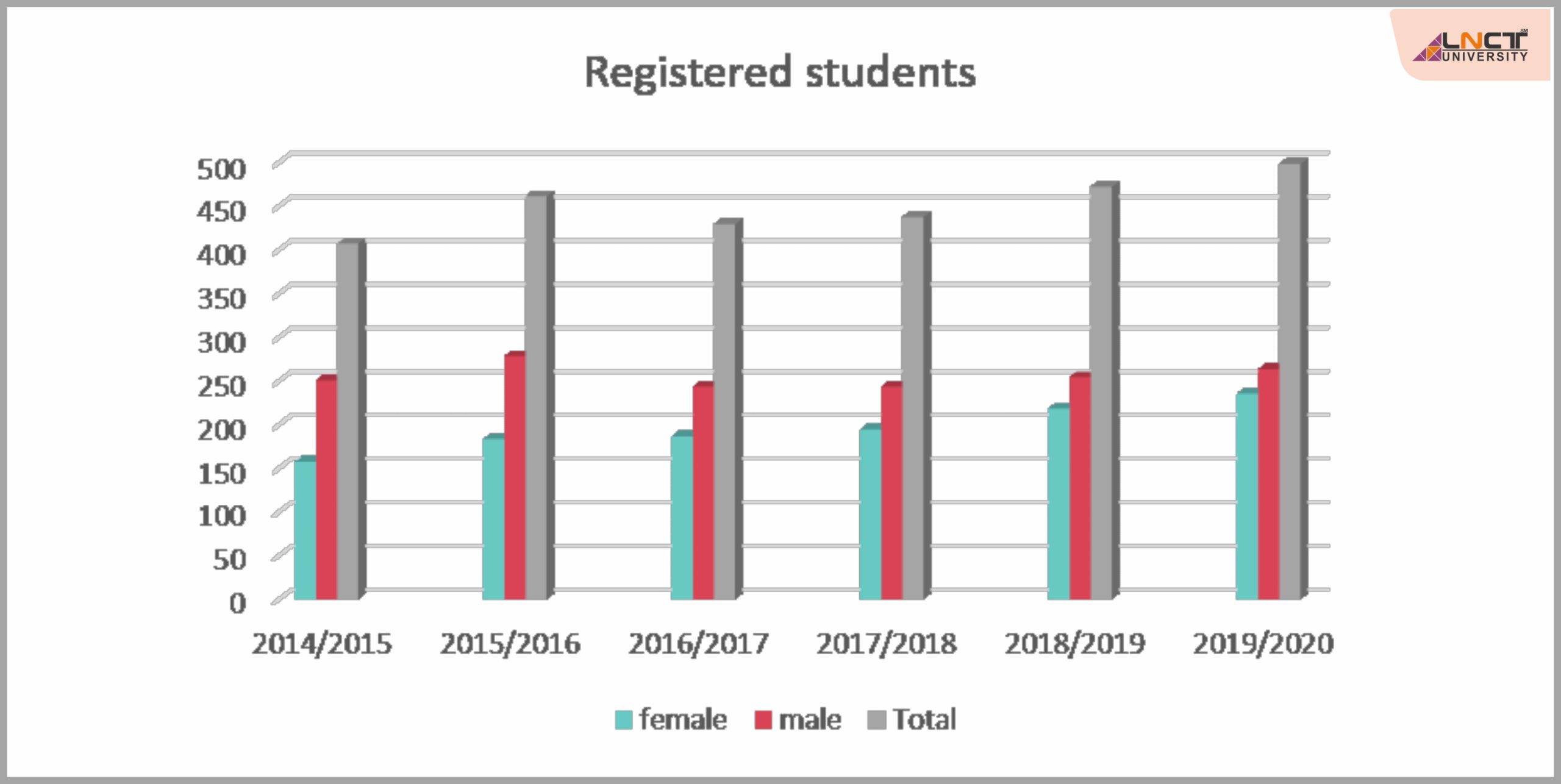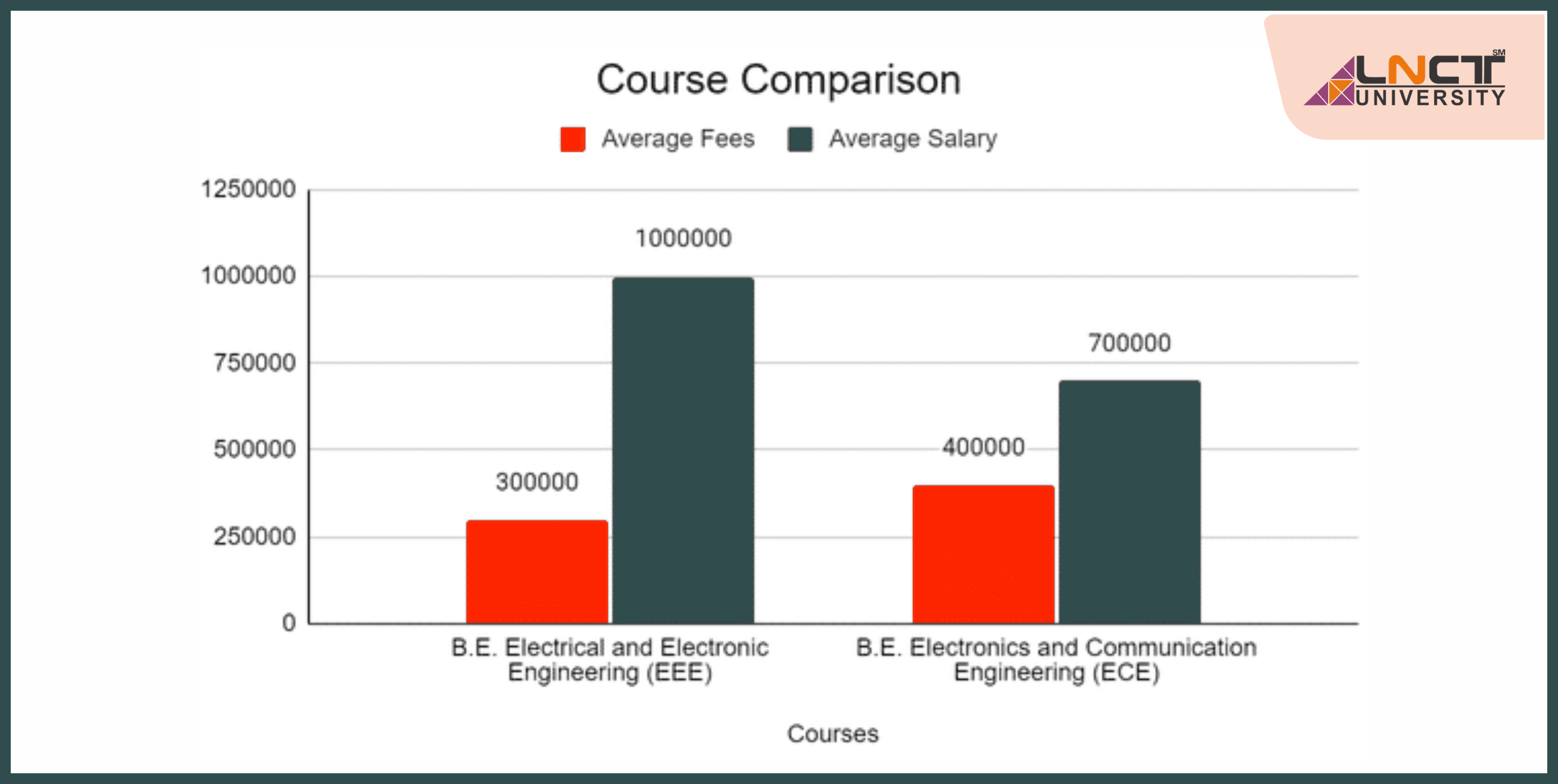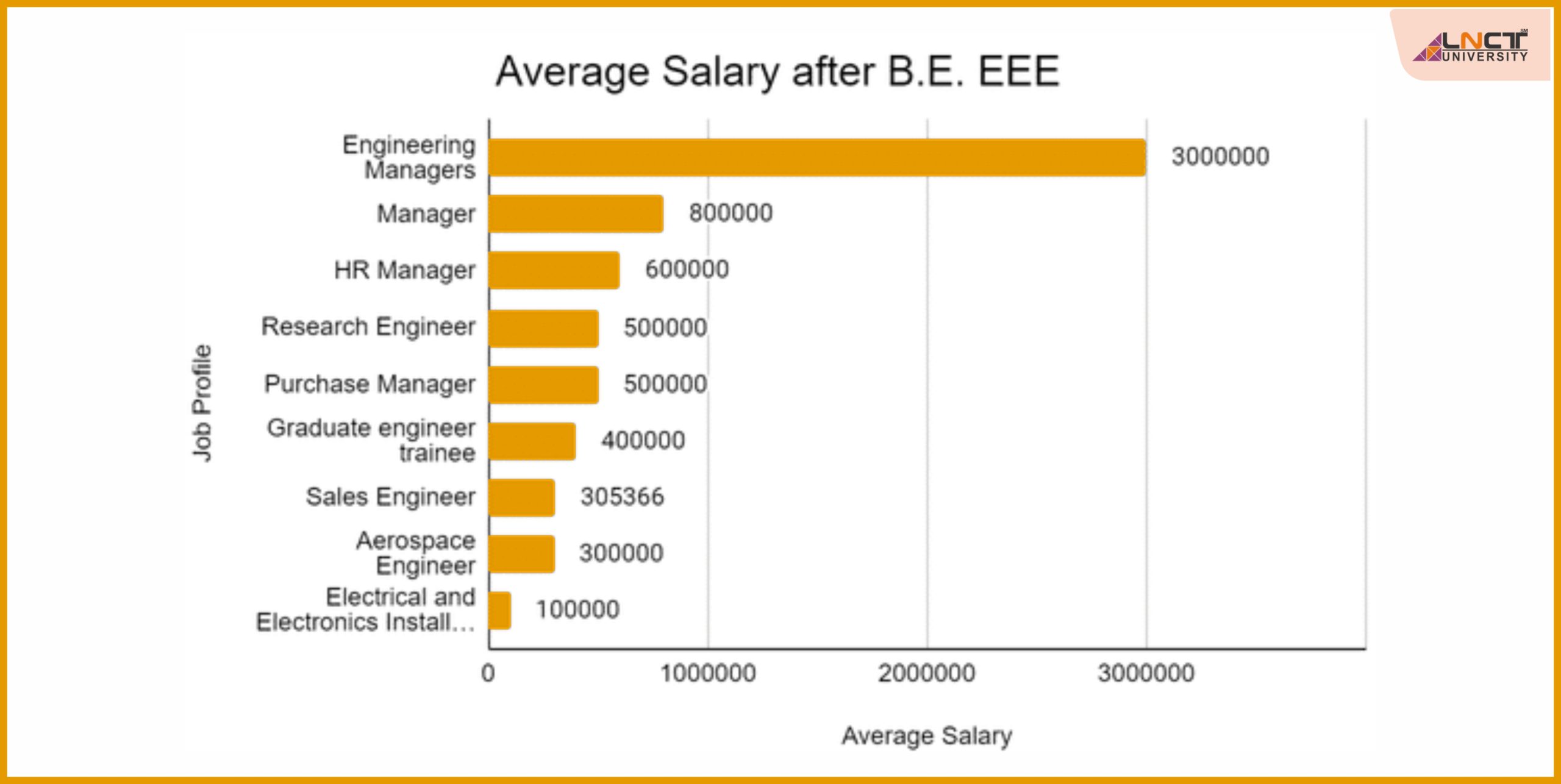Electrical & Electronics Engineering College in Bhopal-Scope of EEE 2021
Electrical & Electronics Engineering: Electrical & Electronics Engineering is the most prestigious & among the most desired course programs in the branch of engineering. It accumulates with Electrical Engineering & Electronics Engineering.
This course program came into existence from Electrical Engineering. With industrial modernism across the globe, it is mandatory to apply & have a deep understanding of the circuits & computerized types of equipment in the electrical & electronic field.
Electrical & Electronics Engineering, also abbreviated as EEE implies power. It can be endured in several forms like a turbine, hydro, gas, fuel cell, solar, wind, or geothermal energy. It necessitates the use, storage, & generation of power & energy.
Usually, Electrical & Electronics Engineering incorporates with the application of the study of Power & Devices. Electrical & Electronics engineering not only plays a vital role in computer electronics but also involves in Communication & Mechanism areas.
Electrical & Electronics Engineering is generally a 4-year study program of Bachelor of Technology. After completion of the course, one can be considered as an Electrical & Electrical engineer.
Electrical Engineering; study program includes:
- Generation of Electricity
- Transmission of Electricity
- Distribution of Electricity
- Analogue Electronics
- Digital Electronics
- Power Electronics
- Embedded Systems
- Communication Systems
Basics of Electrical Engineering & its Types:
Electrical Engineering can be classified as follows:
- Energy Systems
- Power Engineering
- Systems and Control
- Instrumentation and Real-Time Computing
- Video, Image, and Speech Processing
Types of Electronics Engineering
Electronics Engineering can be classified as follows:
- Telecommunications Engineering
- Embedded Systems Design
- Microelectronics
- Electromagnetic Engineering
- Control Engineering
- Instrumentation Engineering
- VLSI Design Engineering
- Computer Engineering
Electrical & Electronics Engineering: Course Details & Duration
Electrical & Electronics Engineering is a rapidly progressing & most sought engineering course for aspiring students. Electrical & Electronics Engineering has a quite close connection in this field. The duration of the course program is generally around four to five years.
After completing the UG degree, the students hold the Bachelor of Technology (B.Tech). A bachelor’s degree generally combines physics, mathematics, & computer science & project management.
You can study Electrical & Electronics Engineering, once you have qualified for the 10+2 examination with mathematics & physics.
There are so many specializations in Electrical & Electronics Engineering which one can opt for after completing the UG degree in Electrical & Electronics Engineering.
The academic criterion of Electrical & Electronics Engineering is split into four courses/programs as follows:
- Diploma courses leading to the polytechnic diploma of 3 years duration. (after 10th or 12th)
- UG courses leading to the B.Tech (Bachelor of Technology) degree of 4 years duration. (after 12th)
- PG courses leading to the M.Tech (Master of Technology) degree of 2 years duration. (after graduation)
- Doctoral courses leading to the Ph.D. (Doctor of Philosophy) degree of ½ – 1 years duration (after post-graduation)
The undergraduate syllabus of BTech in Electrical & Electronics Engineering covers major subjects of electromagnetics, network analysis, electronic devices and circuits, signals and systems, control systems, analog, and digital communications.
Variation of Specialization
Electrical and Electronics Engineering has the following specializations to study:
- Software
- Electronics
- Signal Processing
- Computer Engineering
- Power Electronics
- Communications
- Nanotechnology
- Embedded Systems
- Biomedical Imaging
- Hardware
- Power Systems engineering (including renewable energy)
- Control
B.Tech Electrical & Electronics Engineering: What does it conclude?
The Electrical & Electronics Engineering course is mainly concerned with the methodological dimension of electricity, especially the design and application of circuitry and electronic equipment.
Electrical & Electronics Engineering is not only about electrical appliances but also includes computers, electronics, communication, and mechanical fields.
The procedure of getting Admission to a Top-notch BTech Electrical & Electronics Engineering College
- Those who scored high marks in entrance exams can easily reserve a seat in the recognized college.
- Make a regular habit of practicing mock tests as much as you can, also go through the entire syllabus frequently.
- Make sure that you know the full syllabus of exams, including important topics and question paper patterns.
- You must have to hold a high score in the 10+2 board exam as several renowned colleges provide admission based on 10+2 marks as well.
Admission Process in Electrical & Electronics Engineering
To get admission in the UG course program, the aspirant student requires to sit for the JEE Main & in the case of a PG study program he/she must sit for the GATE 2021.
Aspirant students can start preparing for JEE Main after completing their 12th/intermediate examination for admission into the 4-years Bachelor of Technology (B.Tech) program. Students willing for admission in IITs have to successfully qualify for the JEE Advanced 2021 after qualifying for JEE Main.
After getting a bachelor’s degree in Electrical & Electronics Engineering, students will be eligible for GATE which provides admission into M.Tech in Electrical & Electronics Engineering branch.
There are also various State & University level entrance exams conducted every year for admission into Electrical & Electronics Engineering.
- VITEEE 2021 ( VIT Engineering Entrance Examination)
- VITMEE 2021 (VIT University Master’s Entrance Examination)
- AP EAMCET 2021 ((Andhra Pradesh Engineering, Agriculture and Medical Common Entrance Test)
- TS EAMCET 2021 ( Andhra Pradesh Engineering Agriculture & Medical Common Entrance Test)
- BCECE 2021 Board organizes BCECE ( Bihar Combined Entrance Competitive Examination
Why should one opt for the BTech Electrical & Electronics Engineering course?
The core reasons to study B.tech Electrical & Electronics Engineering course are as mentioned below-
- High Demand: Electrical & Electronics Engineering is one of the rapidly demanding and fruitful career aspects for aspiring candidates who are eager to pursue this course and properly utilizes physics in electrical circuit design and the electronics and communication field.
The demand for Electrical & Electronics Engineering has immensely risen due to the increase in the production of various electric vehicles & a lot of electrical appliances, and other areas like automation & instrumentation design, electrical circuit design, etc.
- Amazing salary packages: The starting packages for freshers in the field of Electrical & Electronics Engineering are generally ranging between 2.5 to 5 lakhs per annum. There are also various State & University level entrance exams conducted every year for admission into Electrical & Electronics Engineering.
- Extreme High Scope: The main purpose of the B.Tech Electrical & Electronics Engineering course is to educate the students with all the mandatory skillsets highly required in handling various Electrical Appliance production sites and Electronic equipment manufacturing sites and also be involved in the analysis and development process. The course curriculum is fabricated in such an impressive & practical way which generally nurtures the students to become successful, empowered to deal with several ultimatums, and have an extensive career scope.
In India, LNCT Group of Colleges is the only renowned & premier college all over Central India to pursue B.Tech in Electrical and Electronics Engineering.
Major highlights of B.Tech Electrical & Electronics Engineering Study Program
| Course Level | Undergraduate |
| Full-Form | B.tech electrical and electronics engineering |
| Duration | 4 years |
| Examination Type | Semester |
| Eligibility | 10+2 or equivalent from a recognized board in PCM Stream. |
| Admission Process | Entrance Exam or direct admission |
| Average Course Fee | Approx. ₹ 3 to 4 lakhs per annum |
| Average Annual Salary | INR 2 to 5.12 Lacs per annum |
| Top Recruiting Companies | Havells, Infosys Limited, Tech Mahindra Ltd, HCL Technologies Ltd, Amazon.com Inc, Sapient Corporation, ABB India, GE Healthcare, SAP Labs India, Mu Sigma, Bank of America Corp. (BOFA), etc. Legrand, Microsoft, Voltech Engineering and Electronics, Crompton Greaves, |
| Job Designations | Software Engineer, Senior Software Engineer, Senior Electrical Engineer, Software Developer, Electrical Design Engineer, Project Engineer, Test Engineer, etc. |
B.Tech Electrical& Electronics Engineering Syllabus
Electrical & Electronics Engineering Syllabus consists of the following subjects which are studied during this course period:
| Semester-I | Semester-II |
| Engineering Mathematics– I | Engineering Materials
|
| Engineering Physics | Environmental Science |
| Engineering Chemistry | Basic Electrical and Electronics Engineering |
| Engineering Mechanics | Engineering Physics-2 |
| Computer Programming | Basic Electrical Engineering Lab |
| Chemistry Laboratory | Physics Laboratory |
| Physics laboratory | Computer Programming Lab
|
| Semester-III | Semester-IV |
| Electric Circuit Analysis | Transducer & Sensors |
| Data Structure & Algorithms | Linear Control System |
| Circuit Theory & Networks | Pulse and Digital Circuits |
| Electrical Machines-1 | Analog Electronic Circuits |
| Electric Circuits Lab | Digital Circuits Laboratory
|
| Electrical Machines Laboratory | Digital Electronics Lab |
| Semester-V | Semester-VI |
| Power Electronics | Power System Analysis |
| Power System Protection | Department Elective III, IV |
| Microprocessors and applications | Electives Laboratory |
| Control System | Utilization of Electrical Energy |
| Discrete Transforms And Signal Processing | Digital Signal Processing
|
| Transmission and Distribution | Energy Engineering |
| Electronics Instrumentation Laboratory | Power Electronics Lab |
| Power Electronics Equipments Lab | Microprocessor Lab |
| Semester-VII | Semester-VIII |
| Industrial Management | Flexible A.C. Transmission Systems |
| Solid State Drives | Advanced Control Systems |
| Power System Operation And Control | Final Project
|
| Power System Laboratory | Comprehensive Viva Voce
|
Lists of books that should be followed while pursuing a BTech in Electrical & Electronics Engineering?
Several terrific Btech Electrical & Electronics Engineering Subject books that students should follow for in-depth understanding are given below in a tabular form.
| Name of the book | Author |
| Basic Electrical and electronics engineering | B.R. Patil, M.S. Sukhija |
| Electric Machinery and transformers | Bhag S. Guru
|
| Electrical Properties of Materials | Laszlo Solymar |
| Materials science for Electrical and Electronics Engineers | Ian Jones |
Future Scopes for students pursuing B.Tech in electrical & electronics engineering
An undergraduate student in B.Tech Electrical & Electronics Engineering can go ahead & seek an excellent job opportunity after completion of a degree or can further go for higher education such as MTech or MBA. They also can start preparing for ample job-oriented competitive examinations. The following are the list of higher education is mentioned below:
• MTech: MTech in Electrical & Electronics Engineering is a full-time course program of only two years. The applicants have to successfully qualify for the great national level GATE Exam, which will permit them in getting admission to the prime colleges which offer the course. There is a high scope of specializations in this branch as the technology is dynamic & keeps changing over time.
• MBA: If you are thinking of pursuing MBA Course then you have made the right decision. After completing the MBA course, you will be having a high scope of getting brilliant opportunities in the best companies and business schools.
B.Tech Electrical & Electronics Engineering Candidates can opt for any one of the below specializations are as follows-
• Banking Management
• Retail management
• Hospital management
• Marketing management
Competitive Examinations: GATE is considered a prestigious national-level engineering exam. It is held every year for getting admission to postgraduate and doctorate level courses at institutes such as IITs, NITs, and IIITs.
A Btech Electrical and Electronics Engineering graduate prepares for GATE exams for reserving a seat in several good institutions for doctoral degrees or they can also prepare for a variety of job-oriented competitive exams.
Job Opportunities & Career Growth
There are ample job opportunities in the branch of Electrical & Electronics Engineering (EEE).
A professional Electrical & Electronics Engineer is generally tasked with layout, develops & manages the Electrical, Electronics & Computer control system efficiently to the mandatory stipulations & concentrating on the administration, authenticity, security, practicability & characteristic.
Telecom industries, transportation systems, aircraft & airspace manufacturing industries, & production & the distribution of power are some of the precise fields of career evolution.
A highly skilled Electrical and Electronics Engineer can work with the industries concerned with product development, control system, system management, product design, sales, consumer electronics, transportation, wireless communication, production, chemical automotive, defense, & space research organizations.
Aspiring candidates can also grow their careers in the teaching field. They can join recognized institutes for lecturer jobs after qualifying Masters of Technology (M.Tech) degree in Electrical and Electronics Engineering. They can also perform research work after getting a prestigious Doctoral degree.
Job responsibilities for Electrical and Electronics Engineers
Electrical engineers are typically assigned with the following listed below:
• Identify new techniques to apply electrical power to advance or improve products
• Execute in depth calculations to improve productions, construction, and installation standards and conditions
• Administer the manufacture, installation, and testing of electrical instruments to make sure that the products meet the requirement for which it is made.
• Scrutinize complaints from customers or the general public, estimate problems, and provides quick & simple solutions
• Do projects with project managers on production attainment & make sure that projects are completed successfully, on time, and not beyond the budget.
Electronics engineers are typically assigned with the following listed below:
• Built several electronic elements, software, products, or systems for commercial, industrial, medical, military, or scientific applications
• Inspect the needs of the audience and discover the basic requirements, dimensions, and cost for developing an electrical system plan
• Improve the maintenance and testing procedures for electronic components and instruments.
• Investigate systems and suggest design ideas or equipment repair
• Examine several electronic equipment, instruments, and other systems to ensure that they have safe quality and appropriate regulations
• Plan and enlarge applications and moderation for various electronic properties used in parts and systems to increase mechanical performance.
Vital features required for Electrical and Electronics Engineers
- Concentration: Electrical and Electronics Engineers are allotted to identify and develop complicated electrical systems and electronic fragments and products. They have to keep a record of multiple design elements and technical features while executing these assignments.
- Initiative: Electrical and electronics engineers are mandatorily required to utilize their knowledge to new assignments in every project they are handling. Furthermore, they need to gather accurate information to continue with advances in technology.
- Interpersonal skills. Electrical and Electronics Engineers have to work with others during the period of the production process to make sure that their ideas are executed accurately. This association includes observing skilled workers and come up with quick solutions to complications when they come to light.
- Math skills.Electrical and Electronics Engineers should use the principles of calculus and other advanced math to examine, outline, and problem-solving equipment.
- Speaking skills. Electrical and Electronics Engineer also works sometimes with other engineers and technicians. They should be capable of explaining their outlines and analysis surely and to transfer instructions during product development and production. They also perhaps require to describe complicated problems to consumers who have a tiny bit or no mechanical skill.
- Writing skills. Electrical and Electronics Engineer can progress technical publications related to a variety of instruments they discover, inclusive of nurturing manuals, operation manuals, parts lists, product proposals, and outline methods documents.
Additional Experience for Electrical and Electronics Engineers
Students can take participate in summer camps when they are studying in high school. By taking participation in these camps students can improve their preparation. The Engineering Education Service Center has a listing of several engineering summer camps.
Job Duties for Electrical and Electronics Engineers
The overall employment of Electrical and Electronics Engineers is predicted to increase 3 percent in the next ten years, about as fast as the average for all occupations. Employment growth is scheduled to be moderate by slow increase or decrease in almost every production industry and telecommunication sectors.
Job opportunities for Electrical and Electronics Engineers are forecasted to take place to a great extent in the professional, scientific, and technical industry because several companies are anticipated to tap the proficiency of engineers for assignments that includes various electronic devices and systems. These engineers will stay in demand forever to create modern consumer electronics.
The accelerated step of methodological innovation will create a high demand for Electrical and Electronics Engineers in research and development, a field where engineering proficiency will be required to outline various distribution systems related to modern technologies. These engineers are going to perform significant roles in the latest innovations with solar arrays, semiconductors, and also in communications technologies.
Career Options for Electrical and Electronics Engineers
· Aerospace Engineers
Usually, Aerospace Engineers outlines airship, spacecraft, satellites, and missiles. Besides that, they develop and test various prototypes to ensure that they perform the outlines accordingly.
· Architectural and Engineering Managers
Architectural and Engineering Managers are assigned with making plans, and synchronize works in various architectural and engineering companies.
· Biomedical Engineers
Biomedical Engineers accumulates engineering principles with medical sciences to outline and develop various instruments, devices, computer systems, and software used for healthcare purpose.
· Computer Hardware Engineers
Computer Hardware Engineers analyze, design, creates, and test computer systems and constituents such as processors, circuit boards, memory devices, networks, and routers.
· Electrical and Electronics Engineering Technicians
Electrical and Electronics Engineering technicians assist engineers in designing and developing computers, communications equipment, medical monitoring devices, navigational equipment, and other electrical and electronic equipment. They also sometimes work on the product rating and testing and use measuring and demonstrative devices to adjust, test, and repair equipment. They are perhaps engaged in the production and categorization of appliances for automation.
· Electrical and Electronics Installers and Repairers
Electrical and Electronics Installers and Repairers install or repair a spectrum of electrical appliances in telecommunications, transportation, utilities, and other organizations.
· Electricians
The work of Electricians involves installing, maintain, and repair electrical power, communications, lighting, and control systems in homes, businesses, and factories.
· Electro-mechanical Technicians
Electro-mechanical technicians have adequate knowledge of mechanical methodology along with the knowledge of electrical and electronic circuits. They perform, test, untagged, and manages automated, robotic, or electromechanical appliances.
· Network and Computer Systems Administrators
Computer networks are the most vital parts of every small to big organization. Network and computer systems administrators are generally allotted with the regular performance of these networks.
· Sales Engineers
Sales engineers usually sell problematic scientific and technological products or services to businesses. They must have a broad knowledge of the products’ parts and their function and must have a deep understanding of the scientific technologies that make these products work.
The top recruiters that require Electrical & Electronics Engineers are listed below:
- BHEL
- NSPCL
- Power Grid Corporation of India Ltd
- BALCO
- SAIL
- NTPC
- Durgapur steel plant
- ISRO
- OMEGA Elevator
- CONE Elevator
- ALSTOM India Power project
- Everest Industry
- ZENITH Construction etc
- L&T Construction and STEEL
- Tata Metallic
- Tata Motors
- Jay Balaji Steel
- Tata Steel & Power Limited
- State Electricity Board
- TRF Ltd
- TRL
- Jindal Steel & Power Limited
- GAIL
- Hindustan Motor
The most prestigious job profiles in the branch of Electrical and Electronics Engineering are as the following:
- Control and instrumentation Engineer
- Electrical Engineer
- Broadcast Engineer
- Manufacturing Systems Engineer
- Systems Analyst
- Electronics Engineer
- IT Consultant
- Systems Developer
- Network Engineer
Salary of a Professional Electrical & Electronics Engineer in India in 2021
In India, a fresher who is holding a degree in Electrical & Electronics Engineering can get an amazing job, offers a salary which is around ₹2.5 lakh per annum upto₹ 5 lakh per annum in 2021.
Abroad, the average salary of electrical engineers is generally expected around $68000 per annum.
Important Books & Study Material regarding Electrical & Electronics Engineering
The best recommended books in the branch Electrical & Electronics Engineering (EEE) are mentioned below:
- United States Navy Electricity and Electronics Training Series By Robert A Gray
- Study and Implementation of Image and Video Matting Techniques By Siddharth Srivastava
- Radio Frequency Identification: From System to Applications By Mamun Bin Ibne Reaz
- Digital Systems Design By Ramaswamy Palaniappan
- Introduction to Digital Signal and System Analysis By Weiji Wang
- Fundamentals of Electrical Engineering I By Don Johnson
- A First Course in Electrical and Computer Engineering By Louis Scharf
- Lithium-ion Batteries By Chong Rae Park
- Practical Optimization: A Gentle Introduction By John W. Chinneck
- Development and Implementation of RFID Technology By Cristina Turcu
- Fuel Cell Handbook By U.S. Department of Energy
- Fundamentals of Electrical Engineering and Electronics By Tony R. Kuphaldt
- A Pragmatic Introduction to the Art of Electrical Engineering By Paul H. Dietz
- Automated Manufacturing Systems with PLCs By Hugh Jack
Top 5 Must Have Electrical Engineering Skills
The highly demanded skills for Electrical Engineers accumulate a combination of various software and programming expertise, like AutoDesk and Matlab, deep understanding of engineering technologies, and must have effective leadership skills such as project management.C++ and similar programming languages are often used across many branches of engineering.
Some of the most top notch industries that recruit electrical engineers involve security firms, defense contractors, aerospace, and IT services companies.
1. Project Management
According to a report of PayScale, project management has the strongest effects on an Electrical Engineer’s average salary. With this extraordinary skill, Electrical Engineers can easily earn 6% more than their salary. This is very important for those who want their promotion in senior positions, where they perhaps provide guidance to junior engineers or be the caption of the teams on various projects.
2. Engineering Design
Engineering design is a sophisticated methodology for engineers to figure out and fix issues. However, it has little influence on the average salary, it is a basic skill for Electrical Engineers. Most of the big industries including the Boston Museum of Science, the Massachusetts Department of Education, and the National Center for Engineering and Technology Education have successfully developed their own engineering design models.
3. Matlab
Expertise with Matlab is a core skill across various fields, that combines both Electrical and Electronics Engineering. The core constituents of Matlab that electrical and computer engineers utilize is known as Simulink. It is generally a graphical programming atmosphere used to craft how designs perhaps perform.
For instance, power system engineers perhaps replicate the effect of different numbers and voltages of mechanisms in a system.
4. Programmable Logic Controllers/Automation
Usually, Programmable logic controllers (PLC) are computing devices precisely developed to be applied in industrial applications like the manufacturing sector.
All engineers don’t need to have knowledge of PLC. But it is advantageous for them to have a better understanding of PLCs as it is implemented in extensive electrical appliances and devices.
For example, PLC technology regulates the performance of power transfer in energy systems, and it can dramatically improve the efficiency of other types of control systems.
Top 5 Must Have Electronics Engineering Skills
The mandatory skill sets required for electronics engineers are highly concentrated on technologies that ensure standard control and assurance. It combines electronics troubleshooting and test engineering. Electronics Engineers can also take advantage of a balance of technical and leadership skills, like project management and expertise with C and C++.
Electronics Engineers often work for government agencies, military organizations, defense and security contractors, and aircraft manufacturing.
1. Project Management
Project Management is considered to be a strong influence on remuneration for Electronics Engineer. This skillset is determined among the ideal for electrical engineering managers, showcases the usefulness it provides to engineers who are desired in career growth. Professionals looking for management fortuity perhaps accountable for supervised complete product life cycles, pinpointing sector for operational improvement, and depict the opportunity of latest product advancement.
Several industries, involving aircraft and manufacturing, erudition of process development structure like Lean Six Sigma are also significant to make certain that teams perform in a systematic way and within the budget.
2. Engineering Design
Electronics Engineers with engineering design skills show a moderate rise in average salary when differentiating to comprehensive electronics engineers. Also, in the case of Electrical Engineers, the engineering outline a particular technology utilizes depends on the company where they work.
Creating an advanced level of friendly relationship with several engineering design representations can help in building more adaptable. This permits Electronics Engineers to concentrate on improving deep expertise when they’ve found out a useful work culture, and also sharp the skill sets that are most fruitful for their career development.
3. Electronic Troubleshooting
According to the payscale data report, Electronic Troubleshooting is the top skill for Electronics Engineers. The complication of this skill usually changes depending on the problems of the devices that require troubleshooting.
4. Test Engineering
Test engineering includes skills from quality assurance and quality control, by both integrating steps to make sure quality and seeking excellent career opportunities to make those processes more efficient.
Test engineering is among the top skills which have a positive correlation with the average electronics engineer salary, increasing earning prospective is round about by 2%. The growth is moderate in contrast to other components though, it is one of the top five fundamental skillsets for Electronics Engineers, and the rapid increase for having this amazing skill can be developed through gaining and throw light on some of the other experts on this list of skillsets. For instance, project management and test engineering both have a strong influence on the salary aspect of Electronics Engineers.
5. C, C++, VHDL, and HDL Programming Languages
Having a great knowledge of the Programming language is very good for engineers, especially with the improvement in integrated circuits and embedded electronics. Embedded systems are generally coded in C, and hardware description language (HDL) is very important for Electronics Engineering if it is applied to demonstrate the performance of circuits.
Both C and C++ were featured in IEEE Spectrum’s top programming languages of 2019 and holds a place in the top 5 both for their overall ranking and for how in-demand these languages are among employers.
Besides that fundamental electrical and electronics engineering skills, you can also acquire high skills by more concentrating in the following areas mentioned below:
- High-performance computing
- Digital signal processing, communications, and control
- Computer networks
- Software engineering and artificial intelligence
- Detection and estimation
- Holography and diffractive optics
- Simulation modeling and heterogeneous systems design
- Wireless communications and networks
Conclusion:
This article is about Electrical & Electronics Engineering that involves courses, types, syllabus, job opportunities, salary, and other pieces of stuff. Electrical & Electronics Engineering is the most prestigious & among the most desired course programs in the branch of engineering.
After completing the UG degree, the students hold the Bachelor of Technology (B.Tech). A bachelor’s degree generally combines physics, mathematics, & computer science & project management.
A professional Electrical & Electronics Engineer is generally tasked with layout, develops & manages the Electrical, Electronics & Computer control system efficiently to the mandatory stipulations & concentrating on the administration, authenticity, security, practicability & characteristic.
The overall employment of Electrical and Electronics Engineers is predicted to increase 3 percent in the next ten years, about as fast as the average for all occupations. Employment growth is scheduled to be moderate by slow increase or decrease in almost every production industry and in telecommunication sectors.






